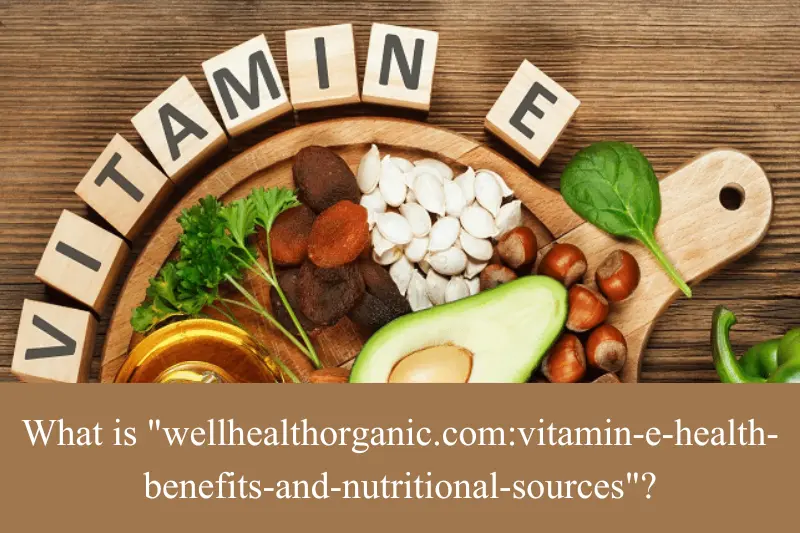Vitamin E is a fat-soluble antioxidant vital for maintaining overall health. It plays a key role in protecting cells from oxidative stress, supporting immune function, and promoting skin and eye health. Here’s an in-depth look at its benefits and the best dietary sources.
Wellhealthorganic.com/vitamin-e-health-benefits-and-nutritional-sources
- Antioxidant Properties: Vitamin E protects cells from free radicals, which can cause aging and chronic diseases. Its antioxidant nature helps prevent oxidative damage, contributing to longevity and overall well-being.
- Skin Health: Vitamin E promotes skin repair and rejuvenation. It is often found in skincare products due to its ability to reduce inflammation, improve skin texture, and help heal scars and wounds. It can also help protect skin from harmful UV rays and environmental pollutants.
- Immune System Support: By enhancing the body’s immune responses, Vitamin E helps fight off infections. It aids in the production of white blood cells, which are essential for immune defense.
- Eye Health: Regular intake of Vitamin E has been shown to lower the risk of age-related macular degeneration and cataracts, maintaining vision as we age.
- Heart Health: Vitamin E can help improve blood circulation and reduce the risk of heart disease by preventing the oxidation of LDL cholesterol, which is responsible for atherosclerosis (clogged arteries).
- Cognitive Function: Some studies suggest that Vitamin E may slow the progression of Alzheimer’s disease and other cognitive impairments, though more research is needed to confirm this.
Nutritional Sources of Vitamin E
Vitamin E is available through various dietary sources, particularly plant-based foods. Here are some of the best sources:
- Nuts and Seeds: Almonds, sunflower seeds, and hazelnuts are excellent sources of Vitamin E. Just a handful of almonds can provide nearly all of your daily recommended intake.
- Leafy Greens: Spinach, kale, and broccoli are rich in Vitamin E, offering not only antioxidant benefits but also essential vitamins and minerals like vitamin C and folate.
- Vegetable Oils: Sunflower, safflower, and wheat germ oils are particularly high in Vitamin E. These oils can be used for cooking or as salad dressings to boost your intake.
- Fortified Foods: Many cereals and juices are fortified with Vitamin E, making it easier to include this nutrient in your diet, especially if you don’t consume many plant-based foods.
- Fruits: Avocados and certain fruits like mangoes and kiwis contain moderate amounts of Vitamin E, providing a tasty way to improve your nutrient intake.
Recommended Daily Intake
The recommended daily allowance (RDA) of Vitamin E for adults is 15 milligrams (22.4 IU). However, your needs may vary based on factors like age, health conditions, and overall diet.
Conclusion
Vitamin E is a powerhouse nutrient with multiple health benefits, from protecting against oxidative damage to enhancing immune function and skin health. By including Vitamin E-rich foods such as nuts, seeds, and leafy greens in your diet, you can ensure you’re getting adequate amounts of this essential vitamin. Always consult a healthcare provider before starting any supplements to determine the right dosage for your needs.
For more detailed information, check out the source here: WellHealthOrganic Vitamin E Health Benefits and Nutritional Sources.






3 thoughts on “Wellhealthorganic.com/vitamin-e-health-benefits-and-nutritional-sources”